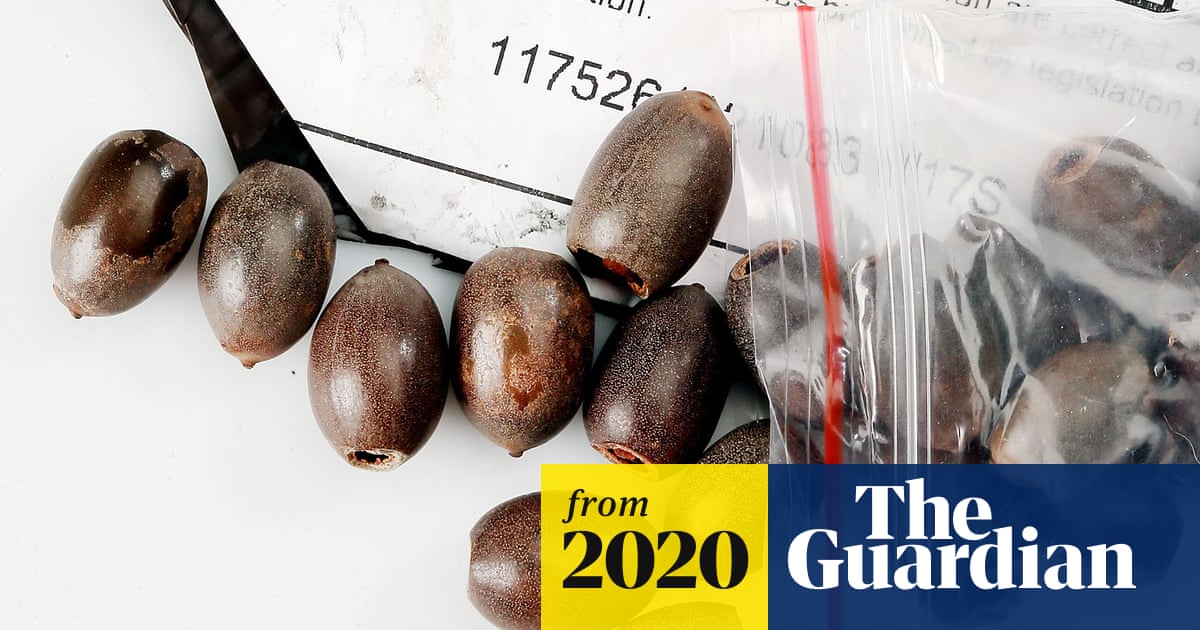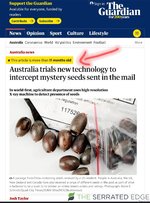vostok
Blooming
- User ID
- 156
nov:20
The Australian agriculture department is undertaking a world-first trial of new technology, aimed at detecting seeds sent in the mail after 228 reports of Australians receiving
mysterious seed packets from overseas.
People in Australia and a number of other countries, including the US, UK, New Zealand and Canada, began reporting packets of seeds they had not ordered in mid-July.
The US Department of Agriculture has suggested that the seeds may have been sent as part of what is called a “brushing scam”. The scam is aimed at boosting third-party sellers’ ratings in online stores such as Amazon or eBay by setting up a fake customer account using someone’s name and address found in a data breach. They then buy a product using that account and ship small items to the person’s address, and then leave a five-star review for that seller.
Ministerial briefing documents obtained by the Guardian show Australian authorities have reached the same verdict.
“Seeds are often sent in the mail as a result of an e-commerce practice called ‘brushing’ to bolster their store’s orders and ratings and to increase their visibility online,” the question time briefing document prepared by the Australian agriculture department states.
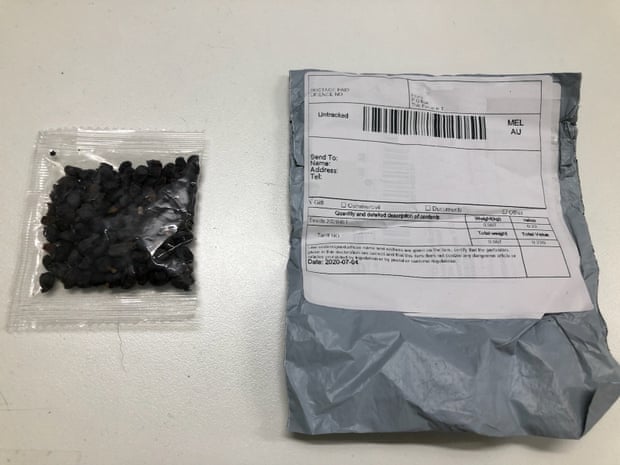
US reports suggest people in all 50 states have this year received seeds in the mail they did not order.
The Australian agriculture department’s head of biosecurity, Lee Cale, told the Guardian it was a similar story in Australia, with 228 reports of unsolicited seeds being sent in the mail since the beginning of July.
“It’s actually in every state, we’ve received reports from every state now,” she said.
Motherboard has reported – based on documents obtained from US state agriculture departments – that hundreds and maybe thousands of Americans had planted the seeds when they received them.
Cale said that is not the case in Australia.
“We very strongly communicate the fact that if people do get these things … we very strongly encourage people to not plant them. Also, don’t throw them out. But to contact us on that dedicated line, and we will go and pick those seeds up.
“And then we’ll either, if we can re-export them to the centre, send them back, but more often than not will destroy them.”
The seeds are being sent from China, Malaysia, Taiwan and Pakistan predominantly, Cale said. Australian scientists had not examined the seeds here to determine what they are, but in US reports, the seeds included rose, sweet potato, onion, cucumber, tomato, radish, peppergrass, alfalfa, corn, lettuce, hollyhock and spearmint.
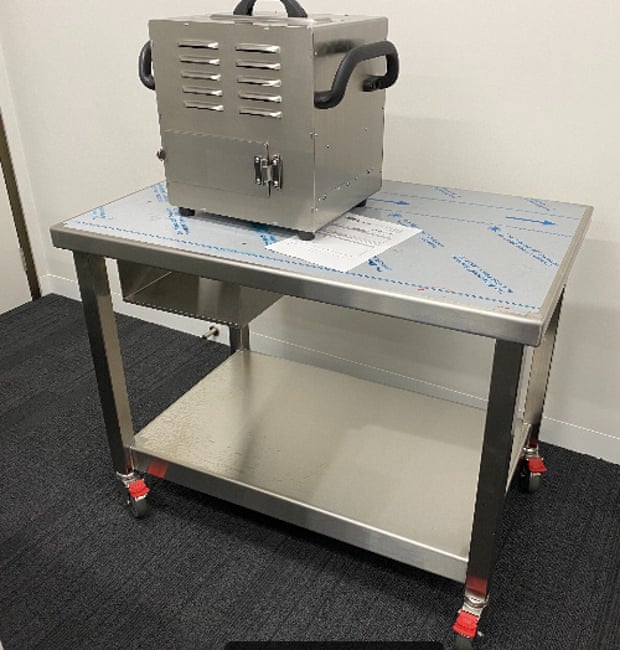
The agriculture department is trying a number of different ways to stop the seeds reaching people in Australia: alerting the jurisdictions where the seeds are coming from to stop them being sent in the first place; raising the issue with the Universal Postal Union; training detector dogs to sniff out the seeds; and now with a $1m trial of new X-ray machine equipment.
The trial is of “a world first seed detection project using real-time video imagery, an auto-detection algorithm, and low-energy, high-resolution X-ray to detect the presence of seeds inside mail articles”, department briefing documents say.
Cale said the current x-ray machine technology used at the border made it difficult for the seeds to be picked up, but the trial with x-ray technology company Rapiscan in Brisbane had been showing results in its early stages.
“We’re preparing for those phase-two trials at the training facility in Brisbane, and then very quickly we want to actually integrate that technology into the Sydney gateway [and] into our operational processes,” she said.
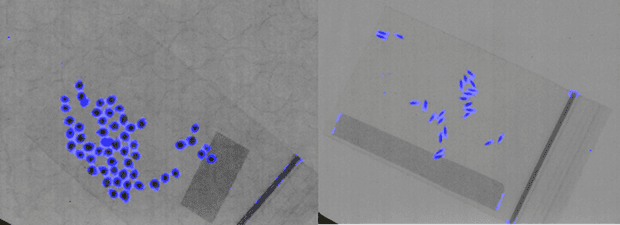
Cale didn’t put a timeline on when it would be rolled out nationally, but said the second phase of the trial would move “quite rapidly”. The size of the machines, being much smaller than the typical mail screening machines, would make them easier to deploy.
“These are much more mobile. The idea would be to deploy those around the mail facilities around Australia.”
In the meantime, the department has encouraged anyone who receives seeds in the mail to report them via www.awe.gov.au/report or to call 1800 798 636.(yeah Right!)
Australia trials new technology to intercept mystery seeds sent in the mail
The Australian agriculture department is undertaking a world-first trial of new technology, aimed at detecting seeds sent in the mail after 228 reports of Australians receiving
mysterious seed packets from overseas.
People in Australia and a number of other countries, including the US, UK, New Zealand and Canada, began reporting packets of seeds they had not ordered in mid-July.
The US Department of Agriculture has suggested that the seeds may have been sent as part of what is called a “brushing scam”. The scam is aimed at boosting third-party sellers’ ratings in online stores such as Amazon or eBay by setting up a fake customer account using someone’s name and address found in a data breach. They then buy a product using that account and ship small items to the person’s address, and then leave a five-star review for that seller.
Ministerial briefing documents obtained by the Guardian show Australian authorities have reached the same verdict.
“Seeds are often sent in the mail as a result of an e-commerce practice called ‘brushing’ to bolster their store’s orders and ratings and to increase their visibility online,” the question time briefing document prepared by the Australian agriculture department states.

US reports suggest people in all 50 states have this year received seeds in the mail they did not order.
The Australian agriculture department’s head of biosecurity, Lee Cale, told the Guardian it was a similar story in Australia, with 228 reports of unsolicited seeds being sent in the mail since the beginning of July.
“It’s actually in every state, we’ve received reports from every state now,” she said.
Motherboard has reported – based on documents obtained from US state agriculture departments – that hundreds and maybe thousands of Americans had planted the seeds when they received them.
Cale said that is not the case in Australia.
“We very strongly communicate the fact that if people do get these things … we very strongly encourage people to not plant them. Also, don’t throw them out. But to contact us on that dedicated line, and we will go and pick those seeds up.
“And then we’ll either, if we can re-export them to the centre, send them back, but more often than not will destroy them.”
The seeds are being sent from China, Malaysia, Taiwan and Pakistan predominantly, Cale said. Australian scientists had not examined the seeds here to determine what they are, but in US reports, the seeds included rose, sweet potato, onion, cucumber, tomato, radish, peppergrass, alfalfa, corn, lettuce, hollyhock and spearmint.

The agriculture department is trying a number of different ways to stop the seeds reaching people in Australia: alerting the jurisdictions where the seeds are coming from to stop them being sent in the first place; raising the issue with the Universal Postal Union; training detector dogs to sniff out the seeds; and now with a $1m trial of new X-ray machine equipment.
The trial is of “a world first seed detection project using real-time video imagery, an auto-detection algorithm, and low-energy, high-resolution X-ray to detect the presence of seeds inside mail articles”, department briefing documents say.
Cale said the current x-ray machine technology used at the border made it difficult for the seeds to be picked up, but the trial with x-ray technology company Rapiscan in Brisbane had been showing results in its early stages.
“We’re preparing for those phase-two trials at the training facility in Brisbane, and then very quickly we want to actually integrate that technology into the Sydney gateway [and] into our operational processes,” she said.

Cale didn’t put a timeline on when it would be rolled out nationally, but said the second phase of the trial would move “quite rapidly”. The size of the machines, being much smaller than the typical mail screening machines, would make them easier to deploy.
“These are much more mobile. The idea would be to deploy those around the mail facilities around Australia.”
In the meantime, the department has encouraged anyone who receives seeds in the mail to report them via www.awe.gov.au/report or to call 1800 798 636.(yeah Right!)
Australia trials new technology to intercept mystery seeds sent in the mail



